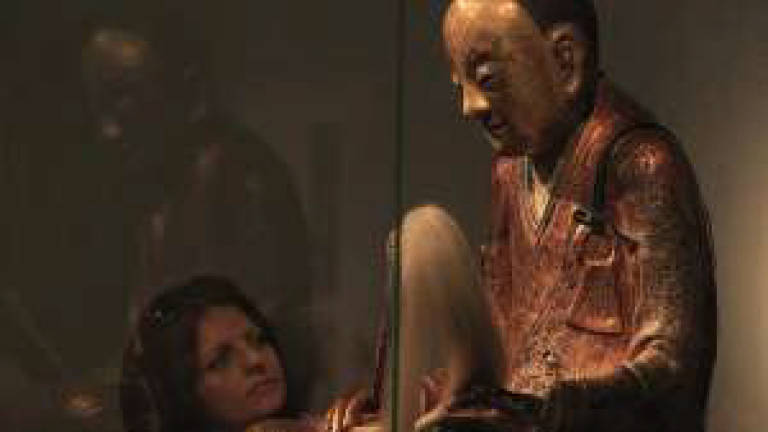Dutch collector tells court he 'no longer owns Chinese mummy'

AMSTERDAM: A fight over ownership of a 1,000-year-old mummified monk opened in a Dutch court on Friday, with an art collector saying he no longer possessed the controversial statue said to contain the mummy.
The small eastern Chinese village of Yangchun has accused Dutch collector Oscar van Overeem of having bought the stolen Buddha statue containing the remains of a monk in Hong Kong in 1996.
But Van Oostereem told the Amsterdam District Court the statue was now in the "possession of a businessman who wants to remain anonymous" after a art swop in 2015.
He declined to name the businessman.
"It was a verbal deal," lawyer Turan Teke told the judge, adding his client only knew the businessman's "international English name" without giving further details.
The human-sized Buddha statue sitting in a lotus position, called the "Zhanggong Patriarch", disappeared from a temple in Yangchun in late 1995 after being worshipped there for centuries.
Missing for two decades, the Buddha statue resurfaced when villagers in 2015 recognised it as part of a display at the "Mummy World Exhibition" at Budapest's Natural History Museum.
The statue was subsequently withdrawn.
A scan of the statue revealed a skeleton inside – said to be that of the monk who lived nearly a millenium ago during China's Song dynasty.
The villagers "without a doubt recognised the statue when they saw it", their lawyer Jan Holthuis told the court.
The relatives of the monk – whom Holthuis says have written proof of their family ties – are asking the court to rule that they are entitled to have their ancestor returned to his rightful place.
Holthuis is using an argument under Dutch law that says "a person is not allowed to have a known body in their possession" to get the statue back.
He also presented a slew of other arguments intending to show that the statute bought by Van Overeem is indeed the one stolen from the temple.
After three hours of technical discussions, presiding judge Jeroen Thomas asked both parties to submit new written statements.
The judge will now also decide whether Van Overeem should disclose the name of the anonymous businessman, Holthuis told AFP after the hearing.
"This will take a few months," he added.
The case is being closely watched as it could mark one of the first successful retrievals of Chinese relics in court, the state-run Chinese newspaper Global Times reported on Tuesday.
Previously similar retrievals have been done through diplomatic channels, the paper said.
Beijing in recent years has vehemently protested the sale of artefacts it says were stolen, particularly in the 19th century when European powers began encroaching on Chinese territory. — AFP